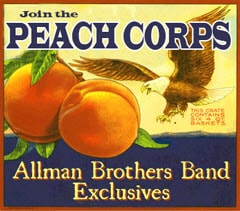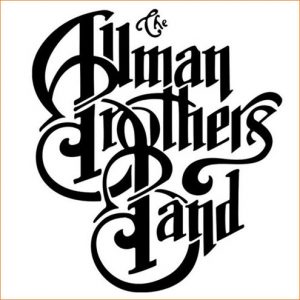By: Bill Thames
For: Hittin’ the Web
Amazingly, at the age of 78, B. B. King is still playing and singing the blues, juking and jiving with the audience, and all with uncompromising passion. The only noticeable effect of age and ailments on the King of the Blues is the fact that he now plays and sings from the comfort of a chair instead of on his feet. When King took the stage at a recent concert, dressed in a psychedelic silk jacket, he quipped to the audience, “I’ll bet I know what you’re thinking—you’re thinking that at seventy-eight, ol’ BB is just too old to stand up and play anymore. That’s what you’re thinking, isn’t it? Well, you’re right!” From that moment on, King’s simple folding chair miraculously transformed into a throne, and it became abundantly obvious that B. B. King is more popular, more respected, and more relevant than ever. He is undeniably, Mr. B. B. King—the one and only—King of the Blues!
B. B. King began his recording career in the 1940’s and he has released over fifty albums, many of which have become classics. He was born Riley B. King on September 16, 1925 on a plantation in Itta Bene, Mississippi, near the small town of Idianola. King developed a love for music, and a strong work ethic at an early age. Playing for nickels and dimes on street corners as a teenager, King would sometimes play four towns in one night, hitchhiking from one to another. In the 1940’s Memphis, TN was the Mecca of southern music, so in 1947, King stuck out his thumb and joined a growing musical community in Memphis. For a while he stayed with a cousin, Bukka White, who was a celebrated blues performer at that time, and King became further schooled in the art of the blues.
King’s first big break came when he played on Sonny Boy Williamson’s radio program in 1948, on KWEM in Memphis. Soon he was playing steady gigs at the Sixteenth Avenue Grill, and doing ten-minute spots on WDIA, a black managed and staffed radio station in Memphis. King’s music spot on WDIA became so popular that it was expanded and became the “Sepia Swing Club” show. With his own radio show, King soon decided that he needed a catchy “air name.” WDIA was located on Beale Street so King’s name started out as the Beale Street Blues Boy, was shortened to Blues Boy King, and finally he became B. B. King. Ironically, King’s actual middle initial “B” is not an abbreviation; it is just “B.”
B. B. King has developed one of the world’s most identifiable guitar styles over the years borrowing from the likes of Blind Lemon Jefferson, T-Bone Walker, and Charlie Christian. During his stint in the army, King was introduced to electric guitar blues, and it changed his life. “I heard an electric guitar that wasn’t playing spiritual,” recalls King. “It was T-Bone Walker doing “Stormy Monday,” and that was the prettiest sound I think I ever heard in my life. That’s what really started me to play the blues.” King took what he could from others and soon began experimenting with his own vocal-like string bends and searing left hand vibrato. His guitar style began to take on a personal complexity and sophistication, featuring delicate single string runs interspersed by piercing cords, scorching vibratos and silky-smooth “bent” notes. Kings style has become a crucial element of every modern rock guitarist’s musical vocabulary. His less-is-more brand of phrasing has become the model for countless modern guitar greats, including Duane Allman, Eric Clapton, Jeff Beck, Warren Hanes, Mark McGee, and Sonny Landreth.
Oddly enough, it was only after playing the Newport Folk Festival and Bill Graham’s Fillmore West, in 1968, on bills with the hottest contemporary rock artists of the day, such as Gregg and Duane Allman’s, Hourglass that King began to be introduced to a younger white audience. Those rock artists who shared the bill with King idolized him, and helped to spread the word. In 1969 King was chosen by the Rolling Stones to open eighteen American concerts for them.
B. B. King was inducted into the Blues foundation Hall of Fame in 1984, and into the Rock and Roll Hall of Fame in 1987. He received NARAS’ Lifetime Achievement Grammy Award in 1987, and has received honorary doctorates from Tougaloo College (MS), Yale University, Berklee College of Music, Rhodes College, and Mississippi Valley State University. In 1992, he received the National Award of Distinction from the University of Mississippi. In 1991, the first B. B King Blues Club opened on Beale Street in Memphis, and since then, King has opened four more in New York City, Los Angeles and Connecticut. In 1996, the CD “On The Road With B. B. King: An Interactive Autobiography” was released. Also in 1996, King’s autobiography, “Blues All Around Me” written with David Ritz, was published by Avon Books. Doubleday also published “The Arrival of B. B. King” by Charles Sawyer, in 1980.
King still embraces that strong early work ethic, and tours extensively, averaging over 250 dates a year around the world. He has played in over ninety countries and in just about every state. Over the years, the King of the Blues has had two #1 R&B hits, “Three O’Clock Blues,” in 1951, and “You Don’t Know Me,” in 1952. He has had four #2 R&B hits, and his most popular crossover hit, “The Thrill is Gone,” went to #15 on the pop charts.
King and his nine piece B. B. King Blues Band mix traditional blues, jazz, swing, pop, country, and jump into rich musical gumbo amply spiced with a polished horn section (Melvin Jackson, Walter King, Stanley Abernathy, and James Bollen), electric bass (Reggie Richards), rock-solid drums (Kalib Winston Jr.), two additional guitars (Charlie Dennis, and Leon Washington), and an extraordinary keyboard player (James Touney). King still enjoys joking and jiving with the audience, and any minimal loss of guitar prowess is more than made-up by his humble stage presence and clever humor. His voice is still rich and melodic, despite a recent bout with the flu. “I didn’t catch the flu. The flu caught me,” he related early on during the show. Later, apologizing for his unusually rough voice, King alleged how, “The Great One gives us all two of everything, except the things that we use too much,” apparently referring to his voice; with a broad smile, impish look, and tongue firmly placed in the corner of his ample cheek.
King also enjoys joshing with and teasing his band mates. While complaining that his drummer rushed the previous song, King’s typically humorous advice for young ladies was to, “Never rush an old man no matter what he wants to do. Give him the time to do it right.” Sage advice from a man seventy-eight years young. King also advised not to upset ladies who have eyes like “Mississippi knives.” Later philosophy and irony crept into his humor when King contemplated why, “Everyone wants to go to heaven, but nobody seems to want to die to get there.”
Always the consummate gentleman, King took ample time near the end of his performance to warmly reintroduce each musician in the band, including baritone sax player, Walter King, who is his nephew. He then thanked his opening act, and introduced guests and friends who had joined him backstage.
It was at this point, near the end of his show, that King told the biggest tall tale of his life, and everyone in the audience immediately reacted. King began singing “The thrill is gone. The thrill is gone away from me!” Of course, he was singing about a love gone wrong—not that he had lost his thrill with the blues. B. B. King will never loose his thrill with the blues, and he apparently will never tire of exciting new audiences where ever he goes—because he is, Mr. B. B. King—the one and only—King of the Blues!



